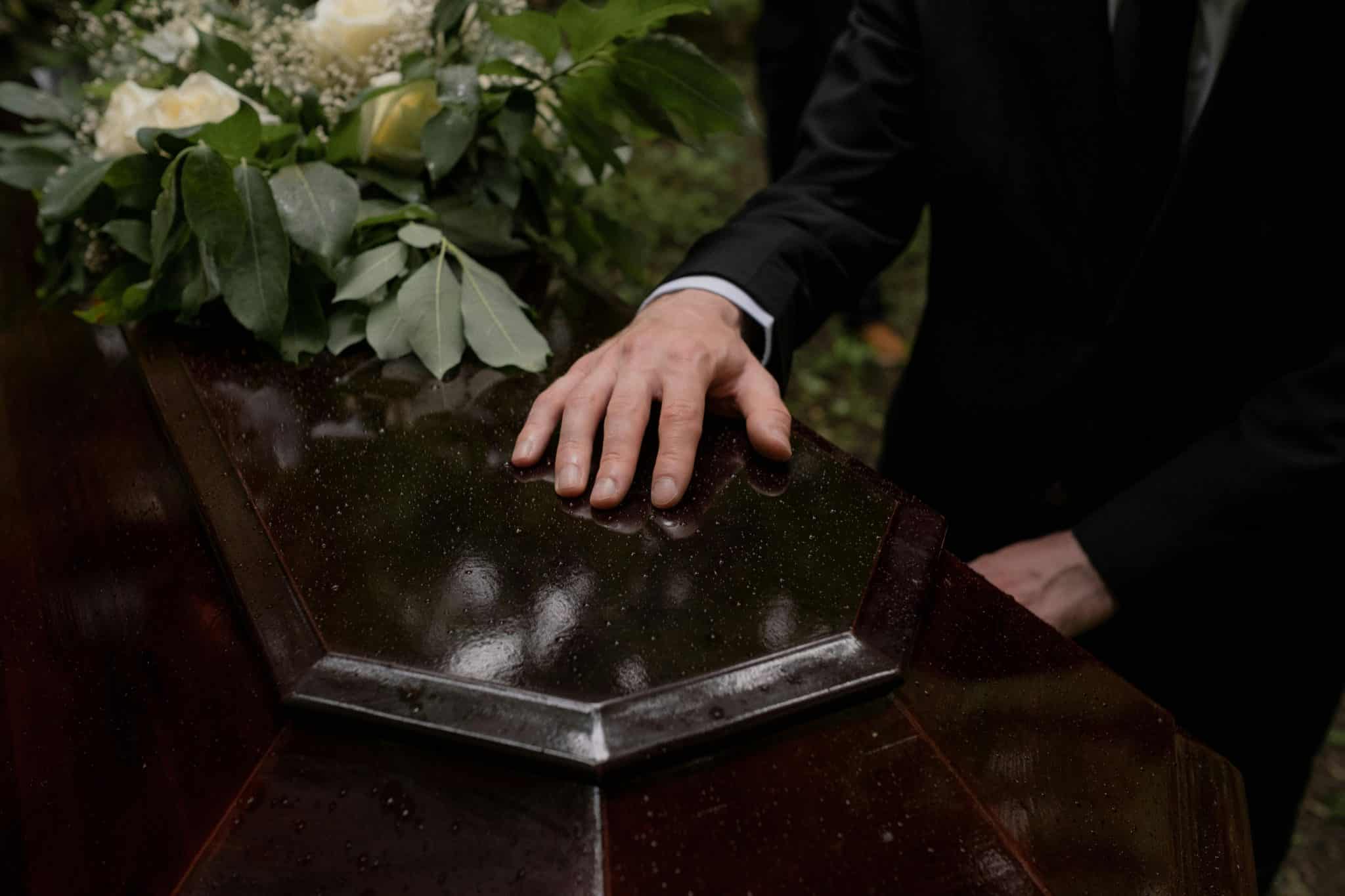Is the middle-class Church in Singapore getting too comfortable?
by Rachel Phua // June 17, 2019, 2:46 pm

Photo by Will Truettner on Unsplash.
The latest General Household Survey in 2015 released some numbers that, while don’t surprise the Christian population, should concern us all.
Among all the religions in Singapore, Christianity had the highest proportion of people in its religious group living in a non-HDB home.
Close to one-third of Christians (including Catholics) lived in a condominium, landed property or “other” types of residence. Compare that to the average percentage across all Singaporeans – only 17.7% of them lived in a similar dwelling.
The statistics on educational levels point to a similar trend. Almost 45% of Christians have attained a university degree, while only 27.4% got to that stage among Singaporeans across the board.
What this means: Using dwelling types and educational achievements as a proxy for income level, these figures illustrate that Christianity is a middle-income religion in Singapore.
So what? We worked hard for that money, some may say. Indeed, all the pastors that Salt&Light spoke to said that there is nothing wrong with money per se. Just look at the Word.
There were well-to-do men and women of God recorded throughout the Bible: Abraham (Genesis 24:35), Jacob (Genesis 30:43), Job (Job 42:12), David (1 Chronicles 29:28), Solomon (2 Chronicles 9:22) are some of the prominent examples in the Old Testament; in the New Testament, we have people like Lydia (Acts 16:14), Joseph of Arimathea (Matthew 27:57; Mark 15:43), Cornelius (Acts 10:1-2), Priscilla and Aquila (Acts 18:2-3).
Our quest for riches may be the undoing of Christianity’s credibility.
But wealth that comes from hard work – as with all we possess – comes under God’s purview.
As Christians, our work ethic has a biblical basis : Restraint (John 6:12), diligence (Colossians 3:23), honesty (Colossians 3:9), fairness (James 2:1-5), and an expectation to carry one another’s burdens (Galatians 6:2), as well as the call to find purpose in our work (1 Corinthians 15:58).
It also pays to remember that Jesus decried the pursuit of affluence.
To the seekers, He warned through parables against amassing wealth. In one parable, a rich man covets the carnal to hedge himself from any earthly hardship (Luke 12:16-20), having forgotten the supremacy of God and “the worth of his soul”, as Matthew Henry puts it in his commentary. God calls the man a fool.
In another, Jesus shows how money affected a man’s judgment and compassion (Luke 16:19-31). The beggar who sat outside his home ends up in Abraham’s bosom, while the man of extravagance ends up in hell.
Lamentably, this quest for riches has struck Singapore, according to the pastors Salt&Light spoke to. And this may be the undoing of Christianity’s credibility.
Middle-class mindset
In the first place, how did the middle-class mindset creep in?
According to Pastor Yong Teck Meng, the pastor of the Reformed Evangelical Church Singapore, it started when Christianity became more cultural than a calling.
Messages that emphasise that loving God requires the denial of oneself are few and far between today.
Christianity became ambient, a product of mission schools, hospitals and church buildings, rather than a conviction that transforms our modus operandi.
“It’s not that we don’t know how (to live for God). It’s that we don’t do,” said Pastor Yong, who is also the national director of Habitat for Humanity Singapore and the chaplain of Far East Organisation. “Because we aren’t mindful of the presence of God all the time, and we don’t think about God until we go to church, we start to live for ourselves and think, ‘Let’s just have fun’.”
This self-centred perspective of Christianity can take a sinister turn: By misusing verses such as John 10:10, Philippians 4:13 and Proverbs 18:21, some believe that God wants us to have “the good life”, surrounded by material, financial and emotional comforts.
It is vital to remember that money can intoxicate (1 Timothy 6:10).
Pastor Yong recalls the period of time when he was running his own business. He was driving a small Suzuki car that would get “bullied” by larger cars on the road, while his business partner drove a Rover furnished with “mahogany wood and leather seats and surround-sound speakers”.
He got to car-sit for this associate for a couple of weeks. Riding the much grander car immediately boosted his ego.
One day as he was driving, he got impatient and blared his horn at the car blocking his lane. He turned around after and saw it was the exact Suzuki model he owned.
As we become more well-off, wants start to feel like needs.
“All of the sudden I realised this lifestyle was toxic,” he said.
As we become more well-off, wants start to feel like needs. Take vacations, for example, said Pastor Yang Tuck Yoong, which have become an “entitlement to most Christians”.
“It has become a must for Christians to go for a holiday in December, and they go to very exotic places,” said the senior pastor of Cornerstone Community Church. “We go on these expensive ski holidays, expensive cruises, and the danger is that we forget that’s not the real world.”
Messages that emphasise that loving God requires the denial of oneself (Matthew 16:24; Romans 8:13) are few and far between today, Pastor Yong added.
“One of the problems is we hardly preach ‘few will enter the kingdom of God’ because Jesus says the way is hard and the gate is narrow and few will find it (Matthew 7:13-14).
“And not all who call Him ‘Lord’ will enter the kingdom of heaven. Only those who do the will of God (Matthew 7:21). You can’t have your cake and eat it too.”
Where do we find our contentment?
Ultimately, an inward-looking faith can distort the very Gospel that followers of Christ are trying to share.
On one hand, Christians become focused on the next blessing God can grant, not finding contentment in God himself (Philippians 1:21).
To whom much is given, much is required. So we have a greater responsibility to be a blessing.
On the other hand, these so-called evangelicals become self-sufficient individuals who have forgotten God’s dominion over life (Romans 11:36; James 1:17).
“We feel like we don’t owe anybody anything,” said Pastor Guna Raman, the former senior pastor of Agape Baptist Church and chief executive of City to City Asia-Pacific. “That this is my life, and I made it.”
What comes next is a hypocritical response cloaked in false spirituality. A believer tells others they aren’t successful because of the sin in their life, or because they didn’t work hard enough.
“Why would you want to witness to someone you have no compassion for?” said Pastor Raman. “We forget that we are actually undeserving, that everything we have received, we received because of the grace of God (John 1:16).”
“To whom much is given, much is required. So we have a greater responsibility to be a blessing and to distribute our wealth in such a way that others are blessed as well,” he added.
What would Jesus do?
A God perspective requires us to practise one simple exercise: Be conscious of how Christ lived on earth.
Jesus, though the Son of the Most High, came down from heaven, made His home in a despised town called Nazareth (John 1:46) and worked as a carpenter (Mark 6:3).
“I believe a person who is close to Jesus Christ would have a simple lifestyle, not matter how rich you are.”
When He began His ministry, Christ never resided in mansions or grand temples, but travelled nomadically, relying instead on the hospitality of others to “lay his head” (Matthew 8:20).
“I believe a person who is close to Jesus Christ would have a simple lifestyle, not matter how rich you are,” Pastor Yong said, reasoning that as one draws closer to the Messiah, delight is found in Him and the future (2 Corinthians 4:17-18) rather than things and circumstances (1 John 2:17).
With a heart for the Lord, the next step is to be incarnational (1 John 2:6) – serving the underprivileged and giving to the needy (James 2:17).
“Some Christians may not be aware of the conditions that some disadvantaged families in Singapore live in. So when they visit a rental flat, they may be surprised to see the conditions there,” said Teo Tee Loon, the executive director of Lakeside Family Services, on developing empathy for the disadvantaged. “Often, the state of the home is not only due to their financial difficulties, but also to mental health issues and other difficulties that the family might be facing.”
Another question to ask is whether Jesus would recognise the Church today, Pastor Yong added, what with the fancy cars parked on church grounds or expensive watches people wear. He has encountered at least one seeker who said she did not want to continue attending service because the hall was “filled with upper income people”.
Neither can one force others to change their lifestyle. “They should move naturally towards it, and in the meantime, I would just lead by example,” he said.
“At the same time, hold on to the biblical truth that if Jesus is walking the earth, for sure he won’t drive a big car, he won’t wear a fancy watch. He’ll drink good wine, but he probably won’t have a wine collection.”
The cost of following Christ
Taking up the cross is never a breeze.
If there’s something I learnt from interviewing the pastors and contending with scripture, it is this: To treat the things of this world with deliberate insouciance.
The mirth and misery of this world are ephemeral anyway (1 Corinthians 7:31).
In three of the Gospels, each writer records the episode when a rich young ruler runs up to Jesus to ask how he can gain eternal life.
He ends up trudging away, disappointed when he is asked to sell all his possessions.
Treat the things of this world with deliberate insouciance.
Jesus then turns to his disciples and says: “ It is easier for a camel to go through the eye of a needle than for someone who is rich to enter the kingdom of God” (Mark 10:25).
Dietrich Bonhoeffer’s interpretation of this incident, in his book The Cost of Discipleship, is particularly striking. He makes no distinction between abundance and greed:
“Jesus may have said: ‘Sell thy goods,’’ but he meant: “Do not let it be a matter of consequence to you that you have outward prosperity; rather keep your goods quietly, having them as if you had them not. Let not your heart be in your goods.”
And to those who insist that it is possible to have both wealth and true faith, holding on to the treasures of this world as if they don’t own it, Bonhoeffer responded:
“Anybody who does not feel that he would be much happier were he only permitted to understand and obey the commandments of Jesus in a straightforward literal way, and e.g. surrender all his possessions at his bidding rather than cling to them, has no right to this paradoxical interpretation of Jesus’ words.”
The German World War II martyr’s instruction seems like an impossible ideal to achieve, particularly to an urbanite who has tasted the luxuries of this earth.
This is where I turn to beg for mercy from the Lord, where in my lifelong rite of sanctification, my gaze will lock onto His, and the things of this world will grow dim as His testament is seared onto my soul (Psalm 37:4).
Jesus, as Pastor Raman concluded, had all the privileges and rights given in heaven. Yet, he came down to mingle with people completely unlike him.
“So if we talk about being Christlike, then I think we will never be able to do what he did. But to a measure, I think we should come down a little bit … and it will change our whole world.”
We are an independent, non-profit organisation that relies on the generosity of our readers, such as yourself, to continue serving the kingdom. Every dollar donated goes directly back into our editorial coverage.
Would you consider partnering with us in our kingdom work by supporting us financially, either as a one-off donation, or a recurring pledge?
Support Salt&Light


